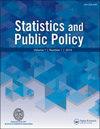Discretionary Wars, Cost-Benefit Analysis, and the Rashomon Effect: Searching for an Analytical Engine for Avoiding War
IF 1.5
Q2 SOCIAL SCIENCES, MATHEMATICAL METHODS
引用次数: 0
Abstract
Those of us who value analytic thinking about public policy and, in particular, about war, can learn a great deal from reading “Cost Benefit Analysis of Discretionary Wars” by Diane Hu and her coauthors.1 The article also raises many questions, and considering them spurs learning too. Their article contributes to the literature by formulating and implementing an approach to the cost-benefit analysis (CBA) of war that is tractable and amenable to empirical use. Notably, the authors add value by operationalizing several dimensions of war’s benefits, by introducing certain simplified methods of estimating the costs of war, and by applying their framework of measuring costs and benefits to five case-studies of discretionary war. As the authors note, they build on the work of Nordhaus (2002), Stiglitz and Bilmes (2008), and others regarding the costs to the United States of the Afghanistan and Iraq Wars, as well as on Hausken’s important theoretical framework for conducting a CBA of war (Hausken 2016). By abstracting from many complexities articulated by Hausken, the authors create an empirically oriented framework that can be populated with data from their case-studies of U.S. discretionary war.2 By examining a war’s benefits and assigning monetary values to them, the authors are able to juxtapose these monetized benefits to their estimates of these wars’ costs, thereby answering the question: Did the costs of these wars outweigh their benefits? The authors’ extensive attention to war’s benefits is distinctive, especially in estimating these benefits for five wars. (Other studies of a U.S. war’s monetized benefits focus on one war.3) Furthermore, they obtain a striking result: costs exceed benefits for all five wars. None, not even the First Gulf War or Korea, escapes the article’s grim verdict: negative net benefits should have ruled out these wars.自由裁量战争、成本效益分析和罗生门效应:寻找避免战争的分析引擎
我们这些重视对公共政策,特别是战争进行分析思考的人,可以从戴安·胡(Diane Hu)及其合著者的《自由裁量战争的成本效益分析》(Cost - Benefit Analysis of Discretionary Wars)中学到很多东西这篇文章也提出了许多问题,思考这些问题也会刺激学习。他们的文章通过制定和实施战争成本效益分析(CBA)的方法对文献做出了贡献,这种方法易于处理,可用于实证应用。值得注意的是,作者通过对战争利益的几个维度进行操作,通过引入某些简化的估算战争成本的方法,以及通过将其衡量成本和收益的框架应用于自由裁量战争的五个案例研究,从而增加了价值。正如作者所指出的,他们建立在诺德豪斯(2002),斯蒂格利茨和比尔梅斯(2008)的工作基础上,以及其他关于阿富汗和伊拉克战争对美国成本的研究,以及豪斯肯进行战争CBA的重要理论框架(豪斯肯2016)。通过从Hausken所阐述的许多复杂性中抽象出来,作者创建了一个以经验为导向的框架,可以用他们对美国自由裁量战争的案例研究中的数据进行填充通过研究一场战争的利益并赋予其货币价值,作者能够将这些货币化的利益与他们对这些战争成本的估计并置,从而回答了这个问题:这些战争的成本是否超过了它们的收益?作者对战争利益的广泛关注是与众不同的,特别是在估计五场战争的这些利益时。(其他关于美国战争货币化收益的研究集中在一场战争上。)此外,他们得出了一个惊人的结果:所有五场战争的成本都超过了收益。没有一场战争,甚至包括第一次海湾战争和朝鲜战争,逃不过这篇文章的残酷结论:负净收益本应排除这些战争。
本文章由计算机程序翻译,如有差异,请以英文原文为准。
求助全文
约1分钟内获得全文
求助全文
来源期刊

Statistics and Public Policy
SOCIAL SCIENCES, MATHEMATICAL METHODS-
CiteScore
3.20
自引率
6.20%
发文量
13
审稿时长
32 weeks
 求助内容:
求助内容: 应助结果提醒方式:
应助结果提醒方式:


